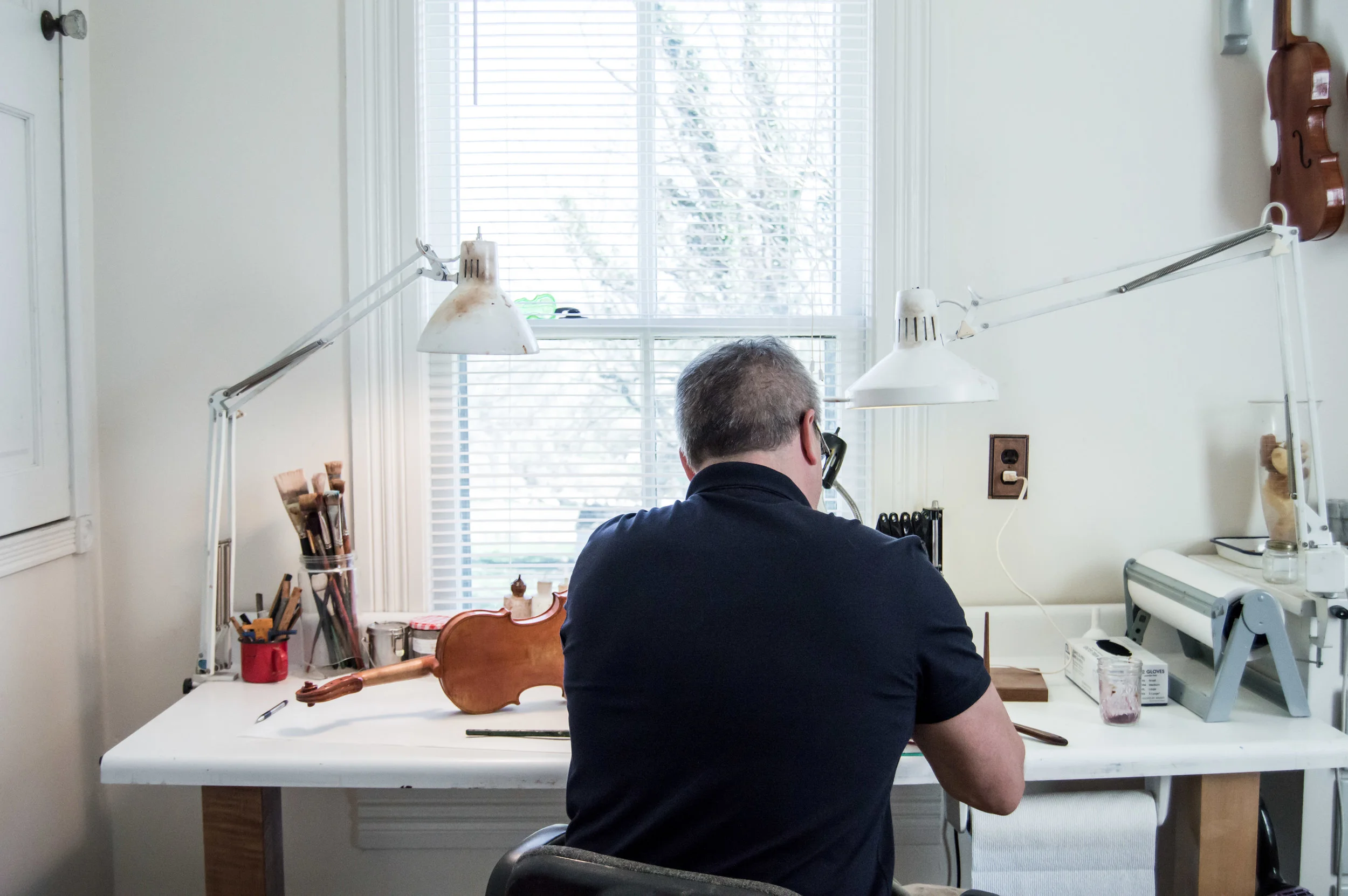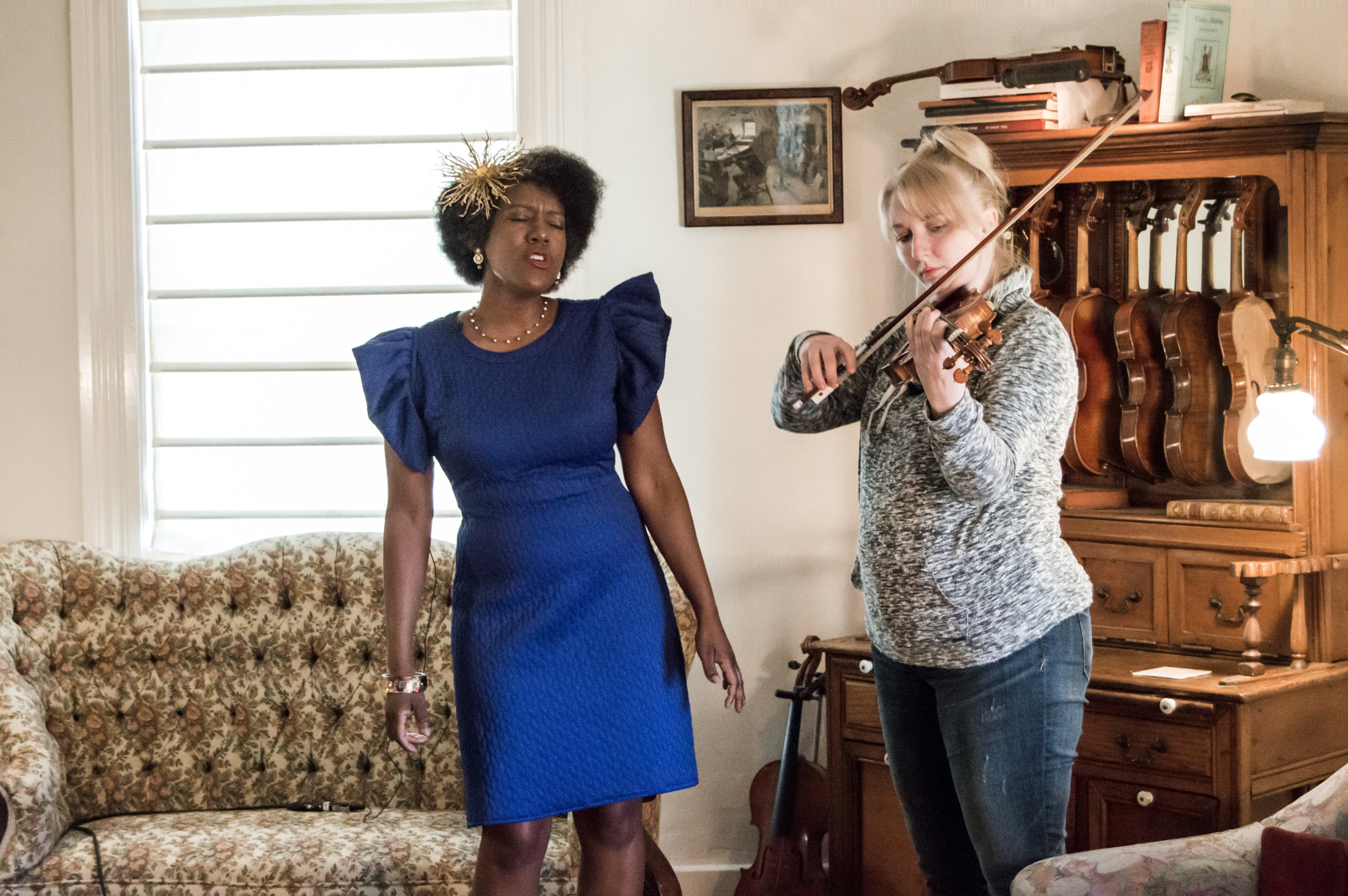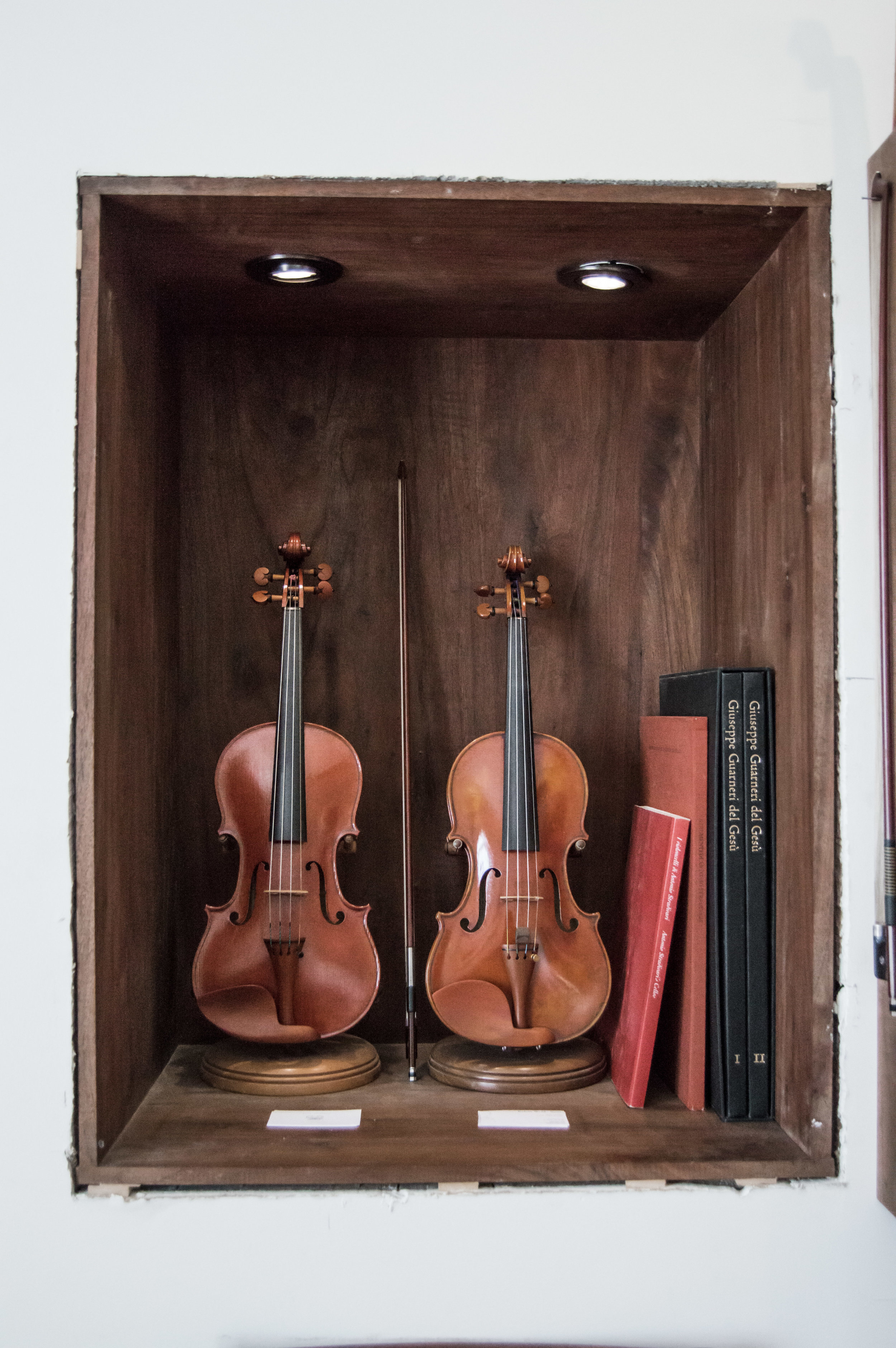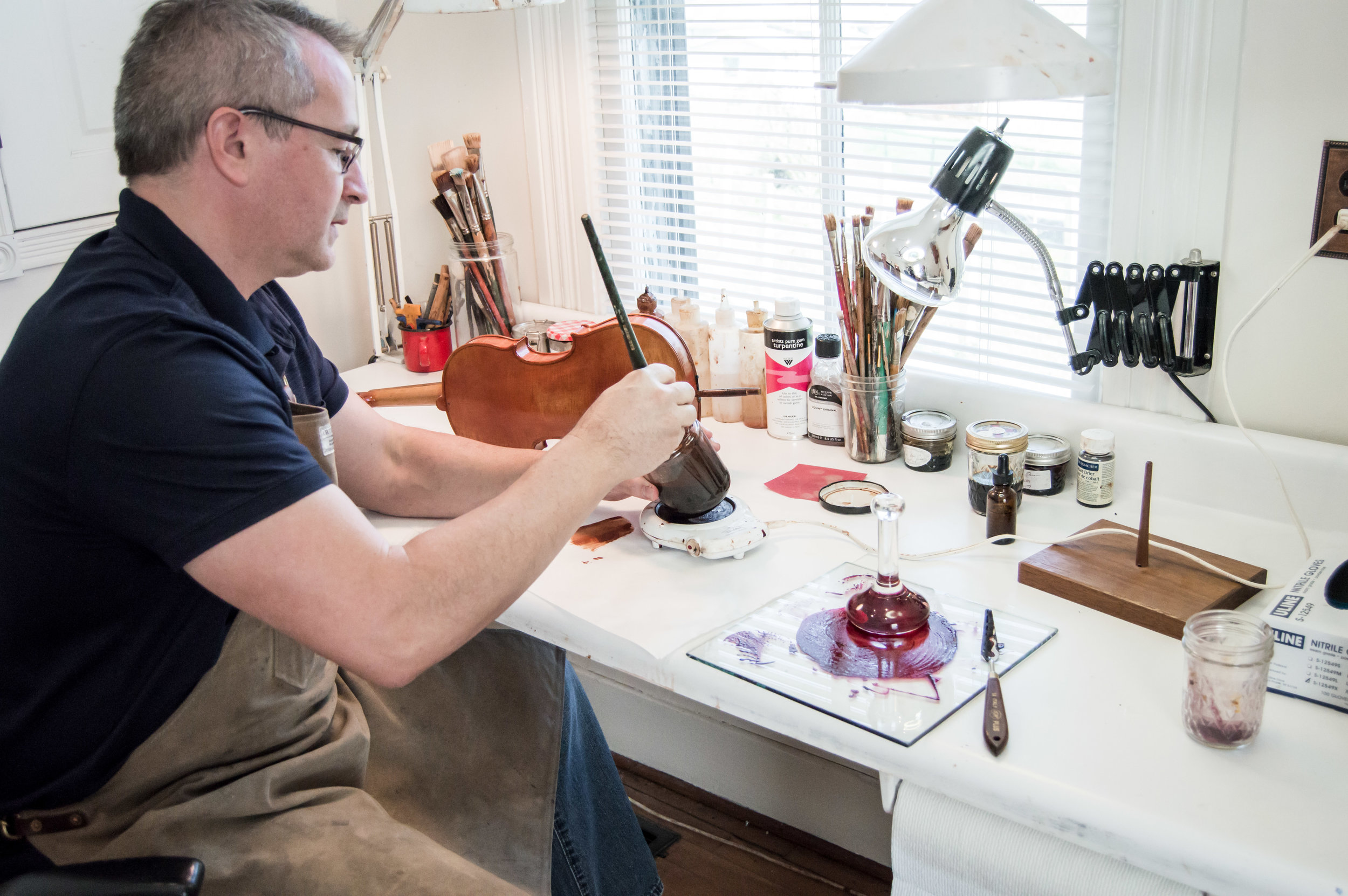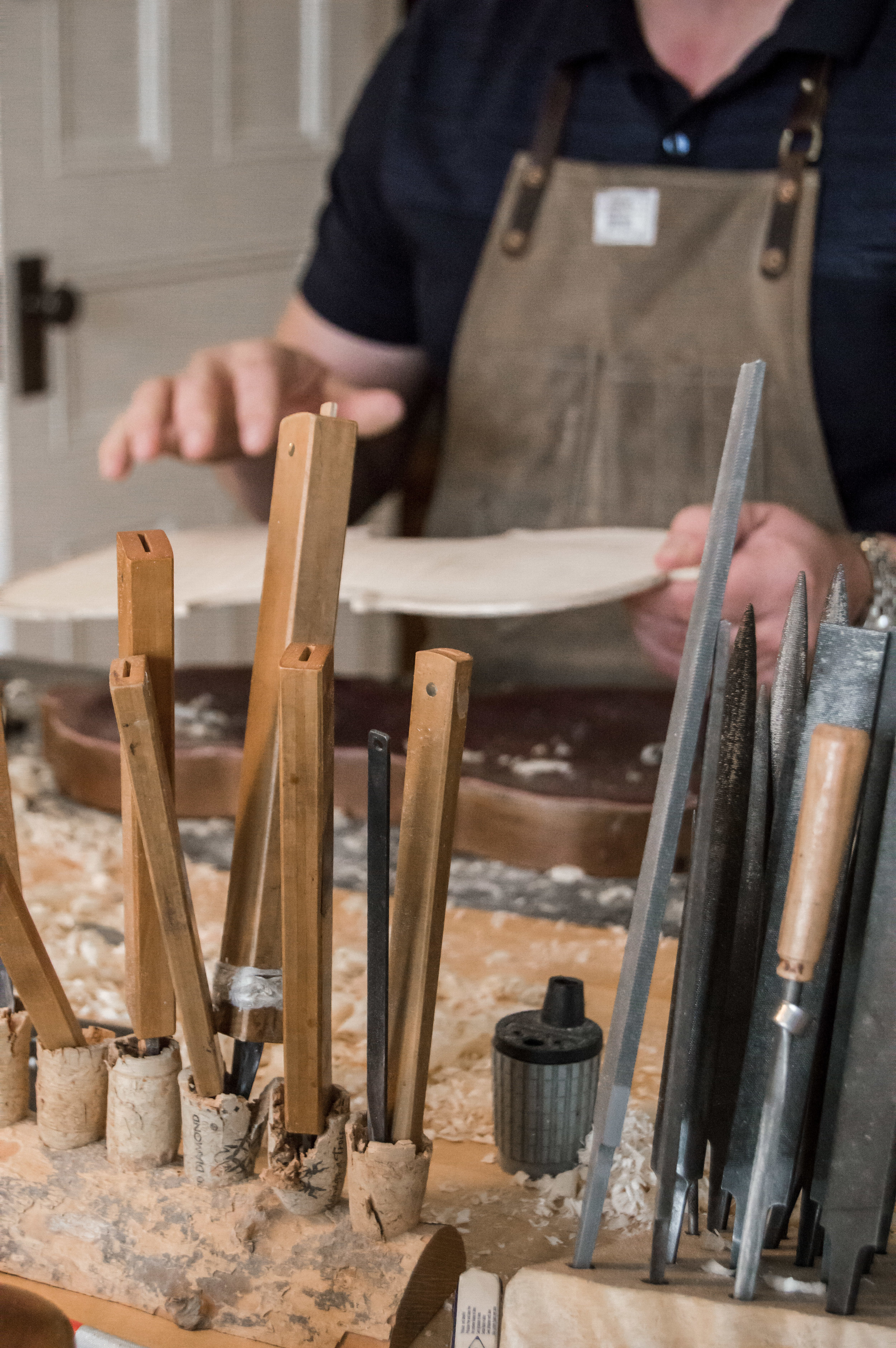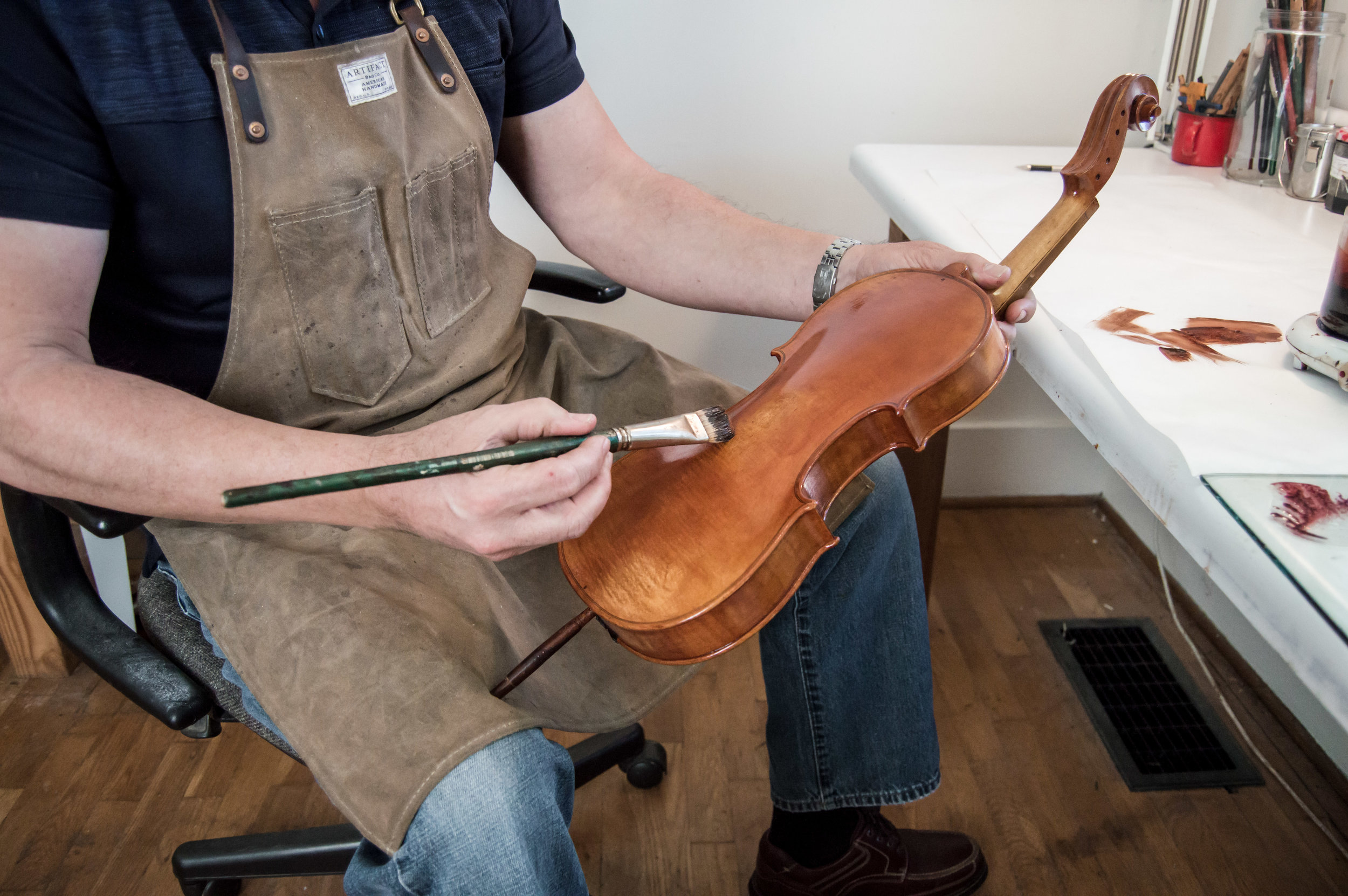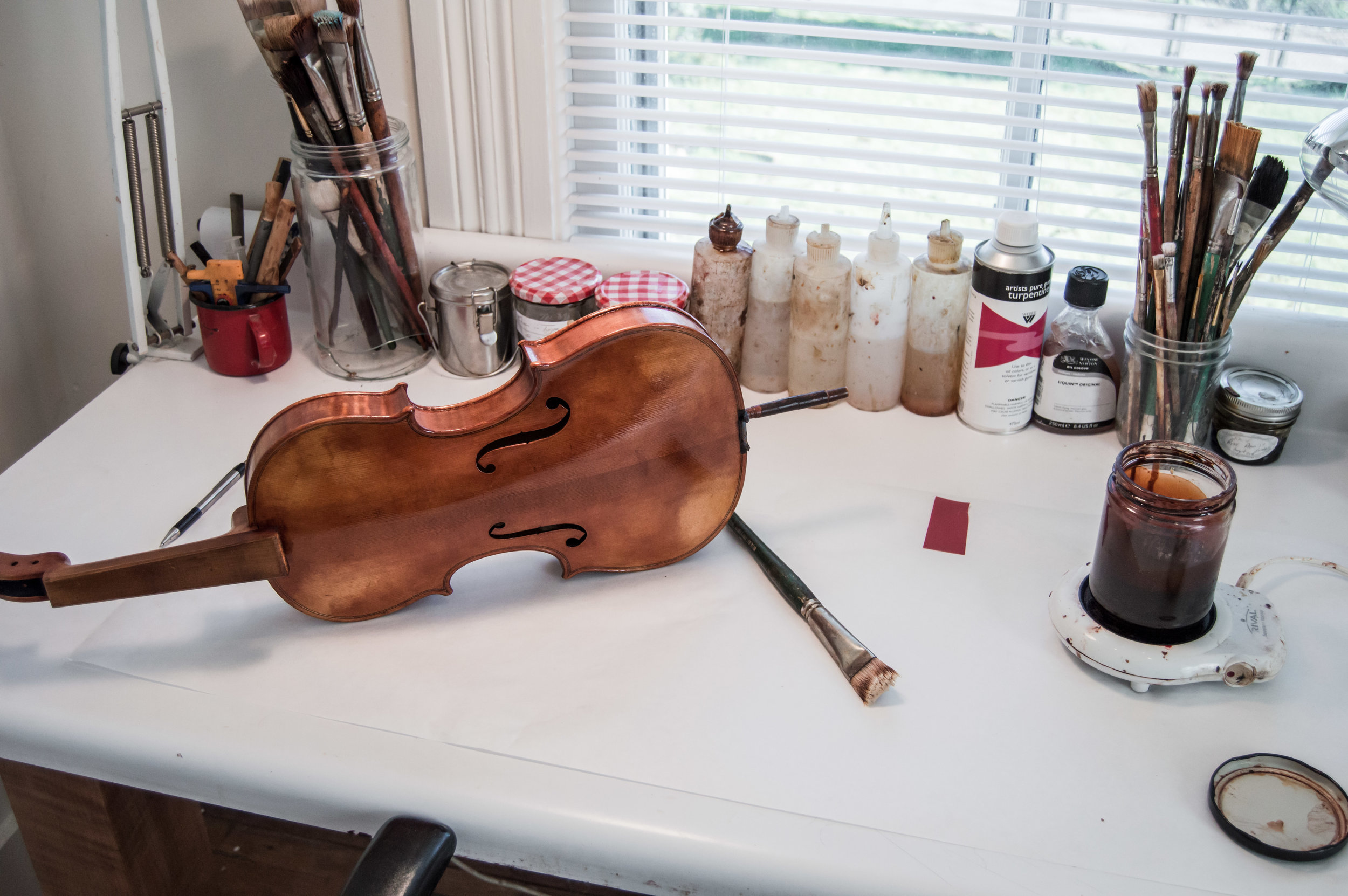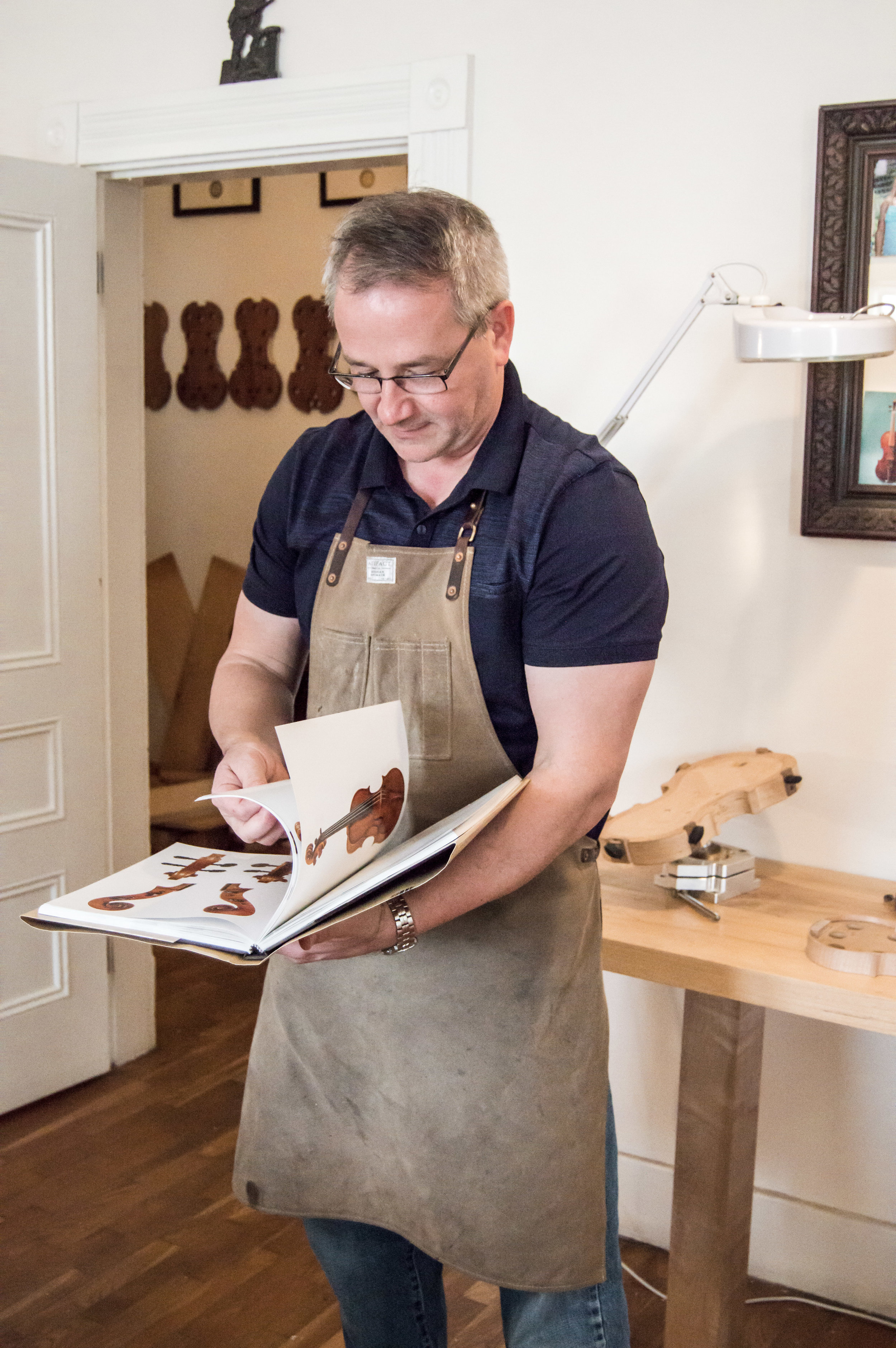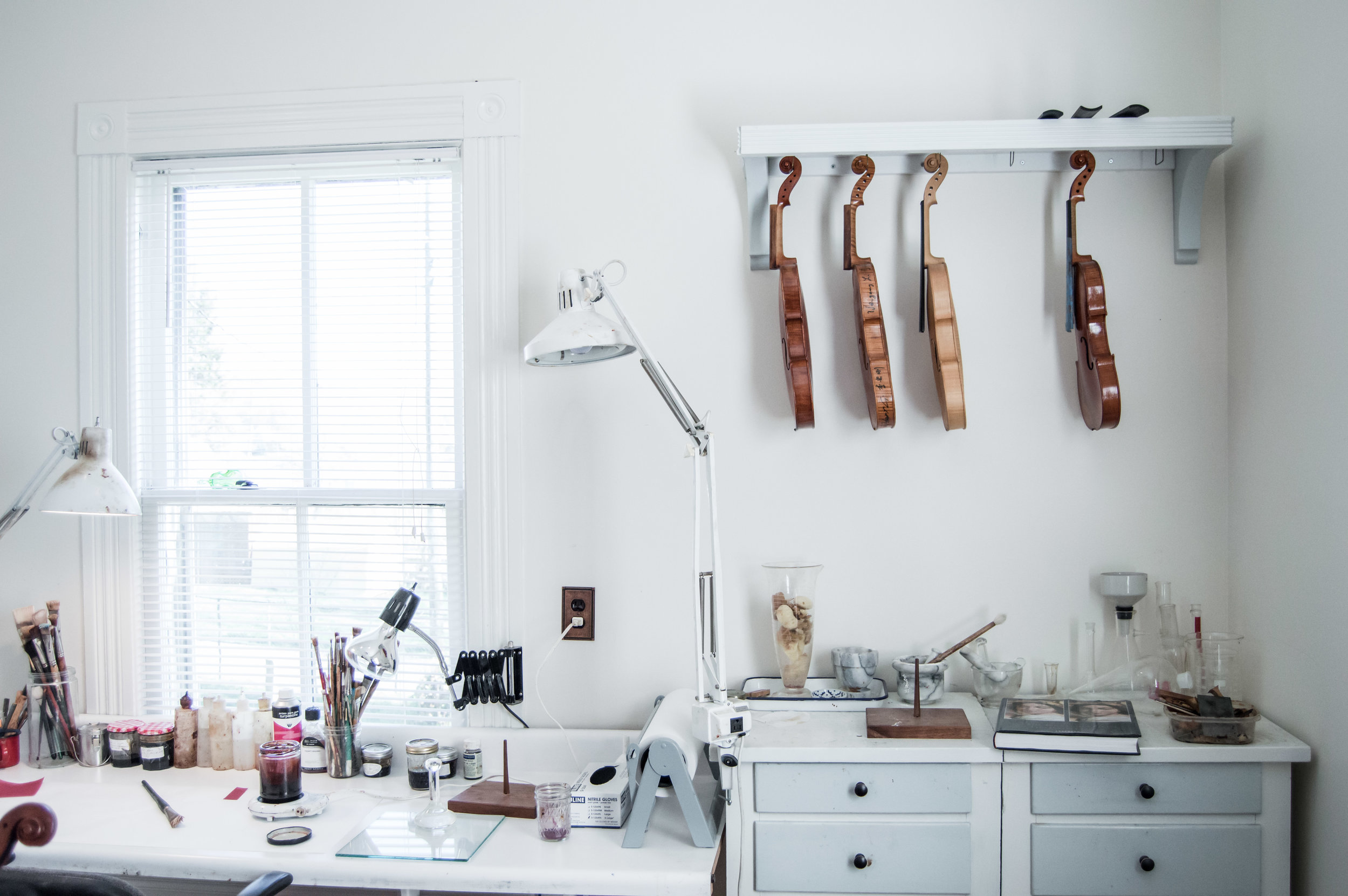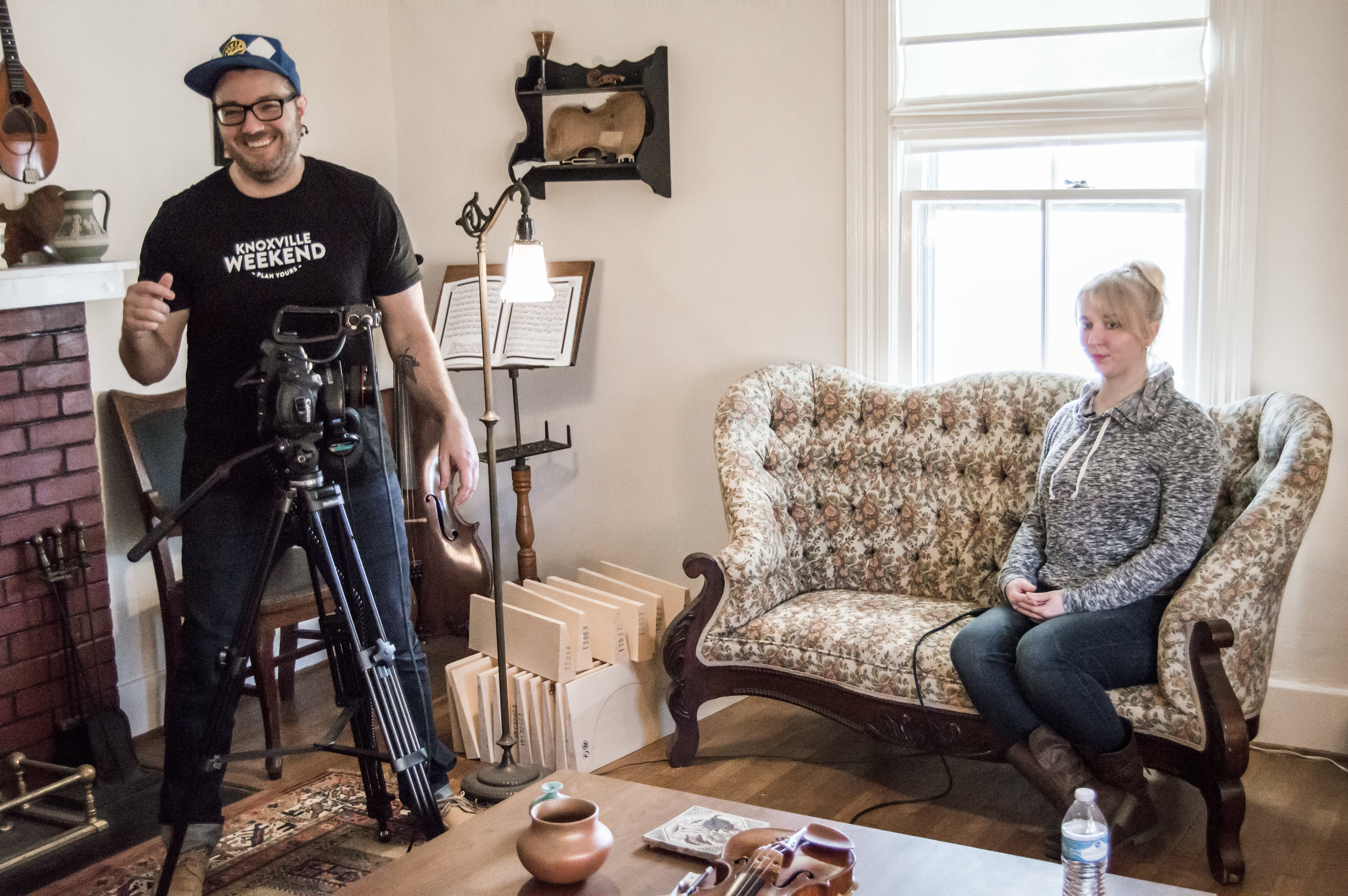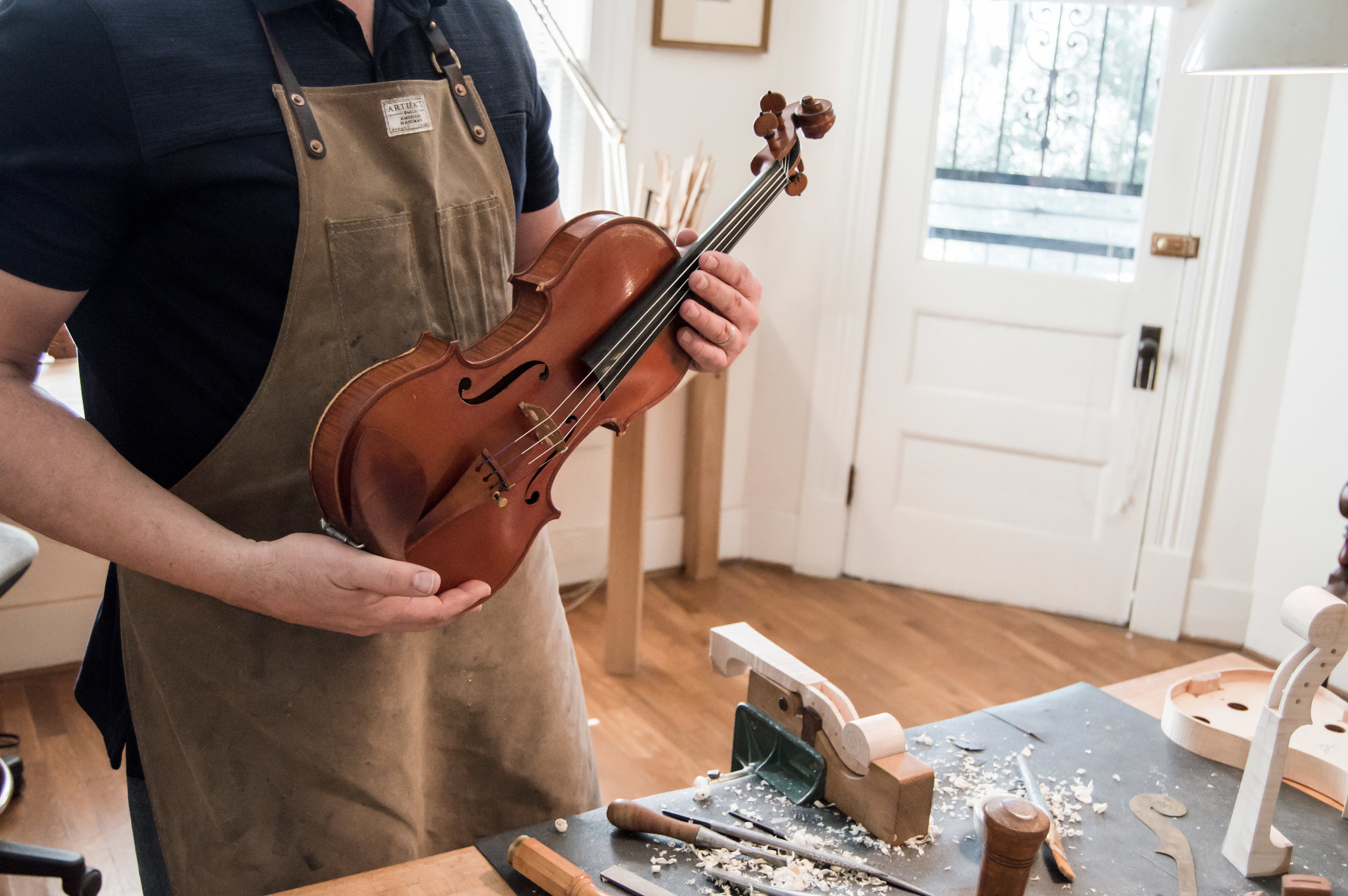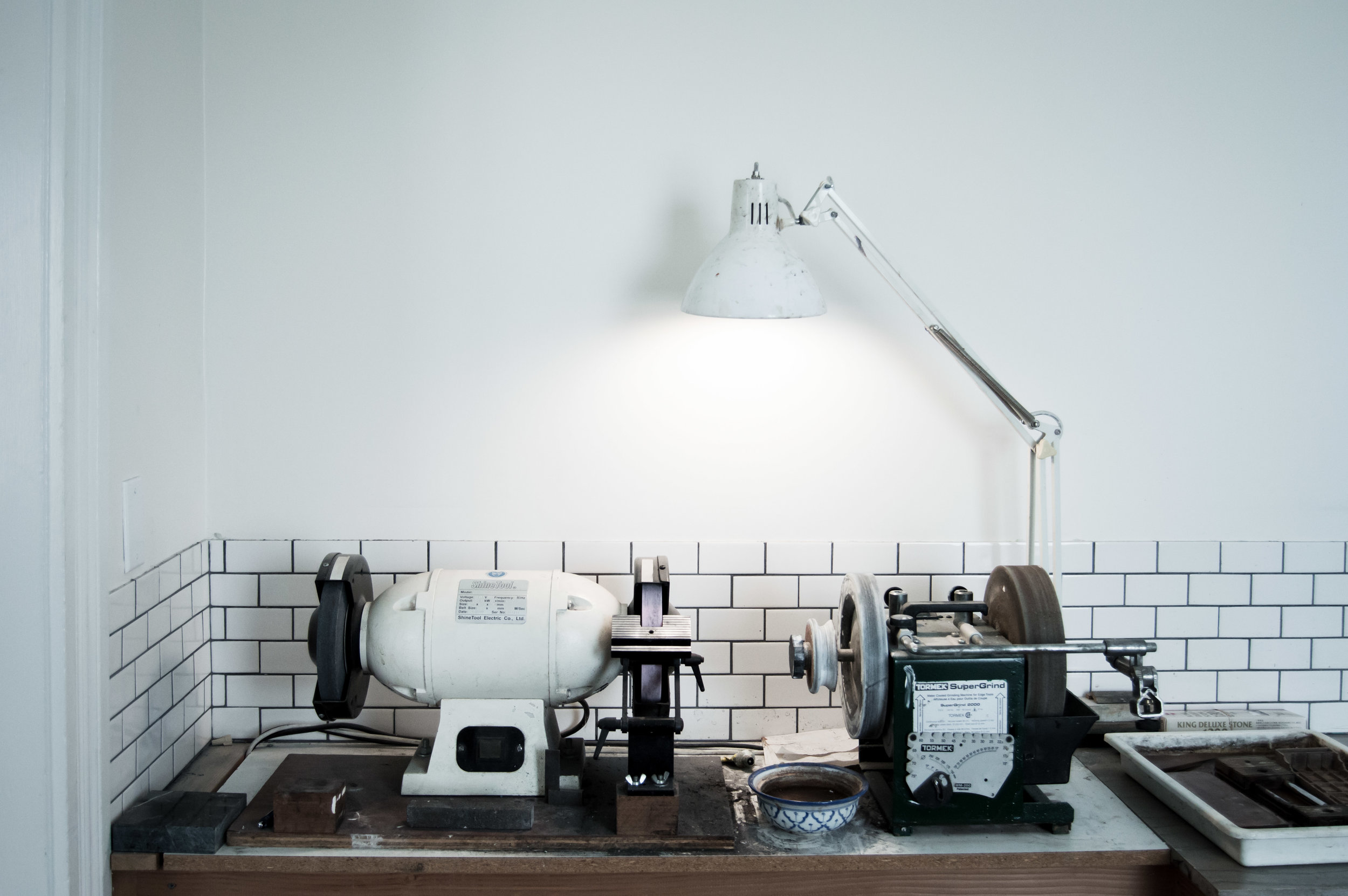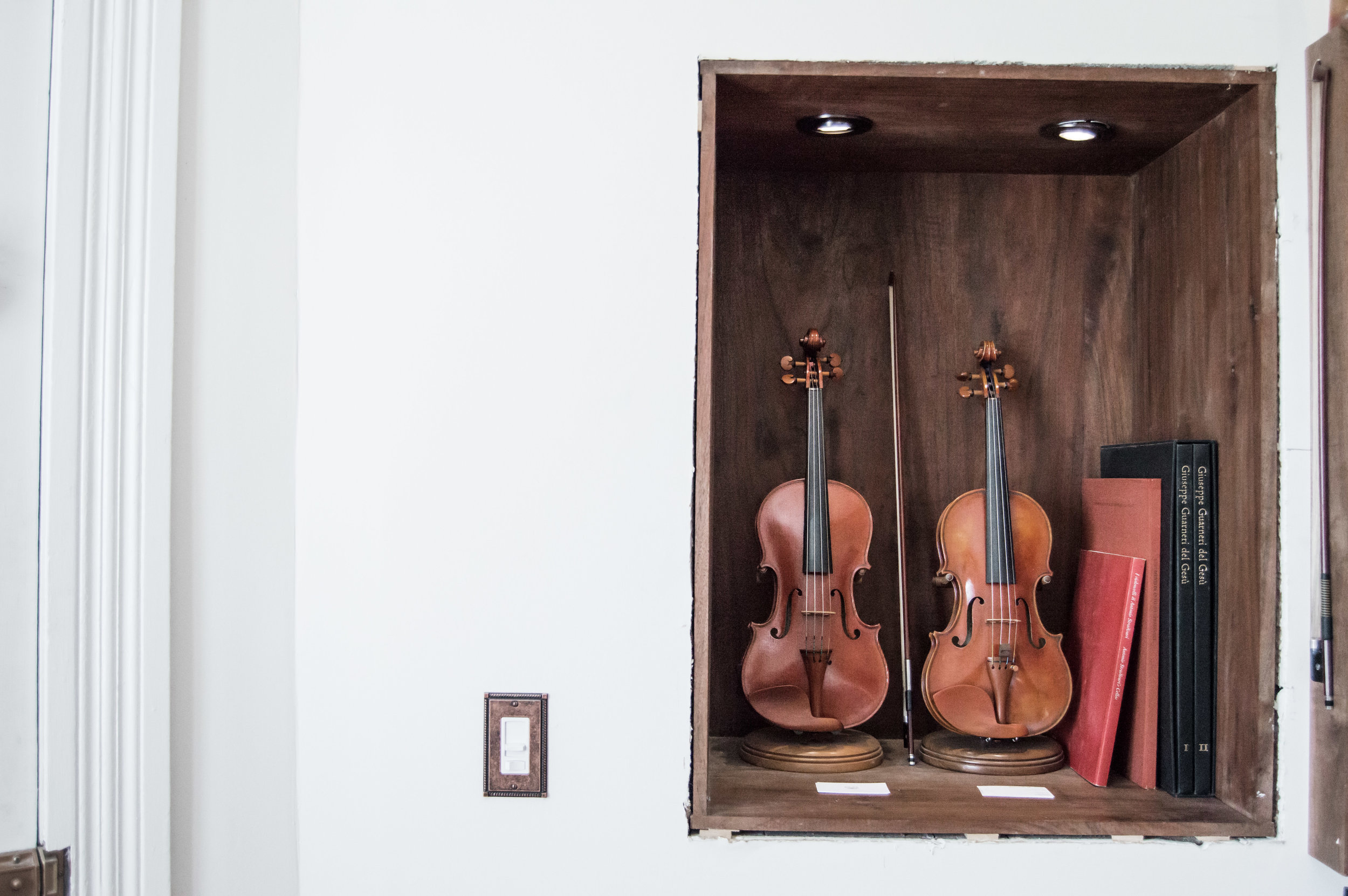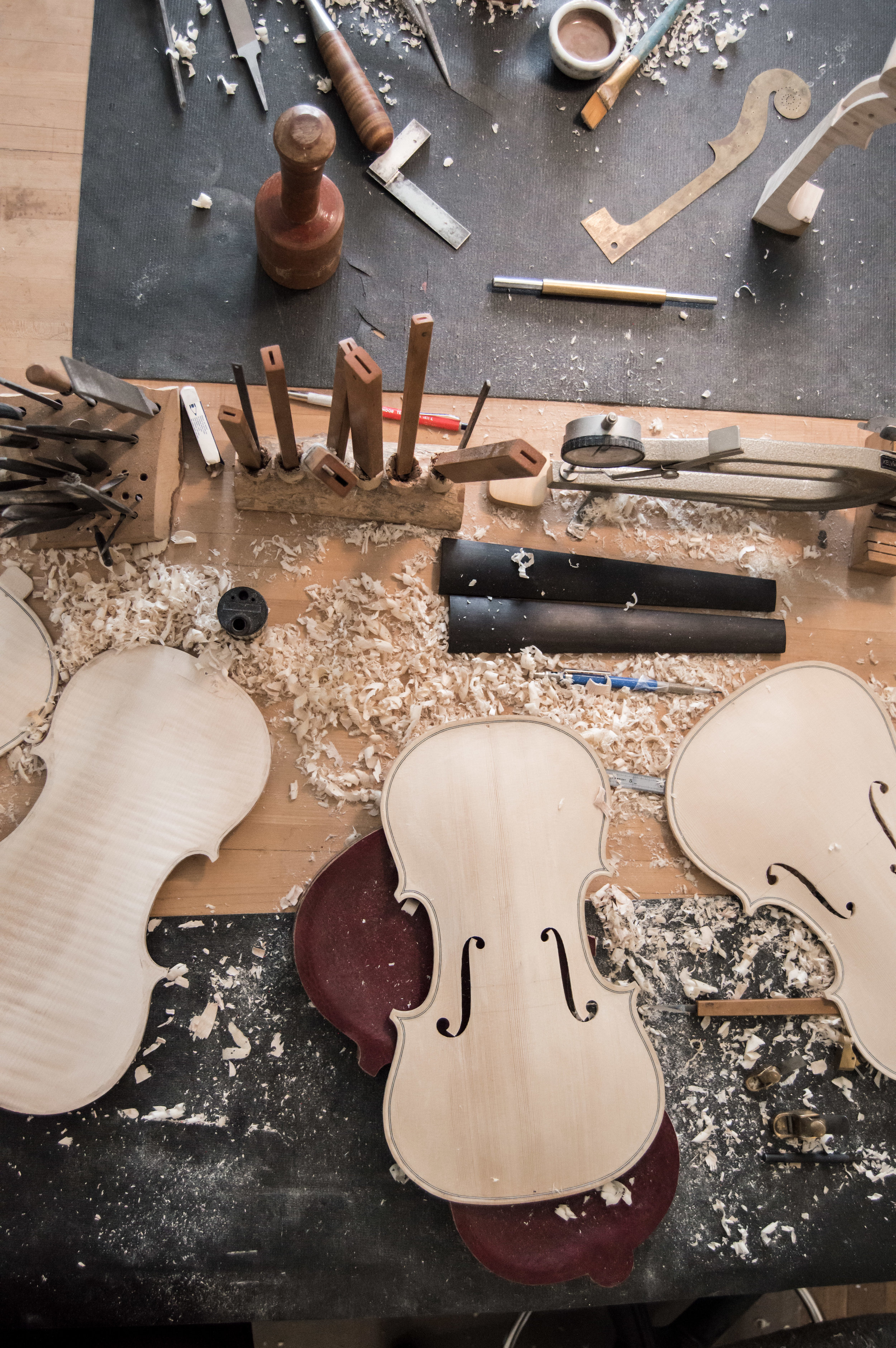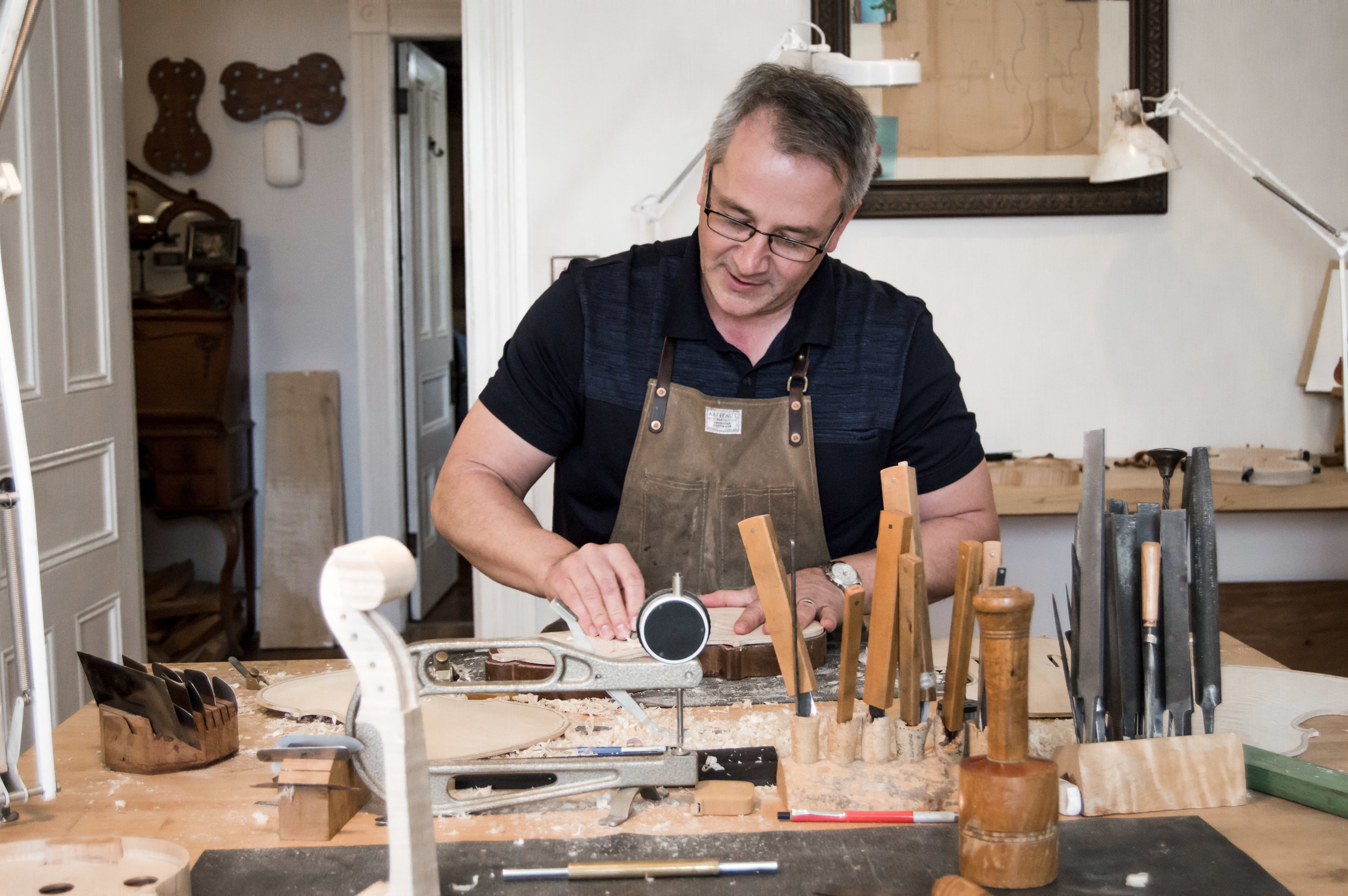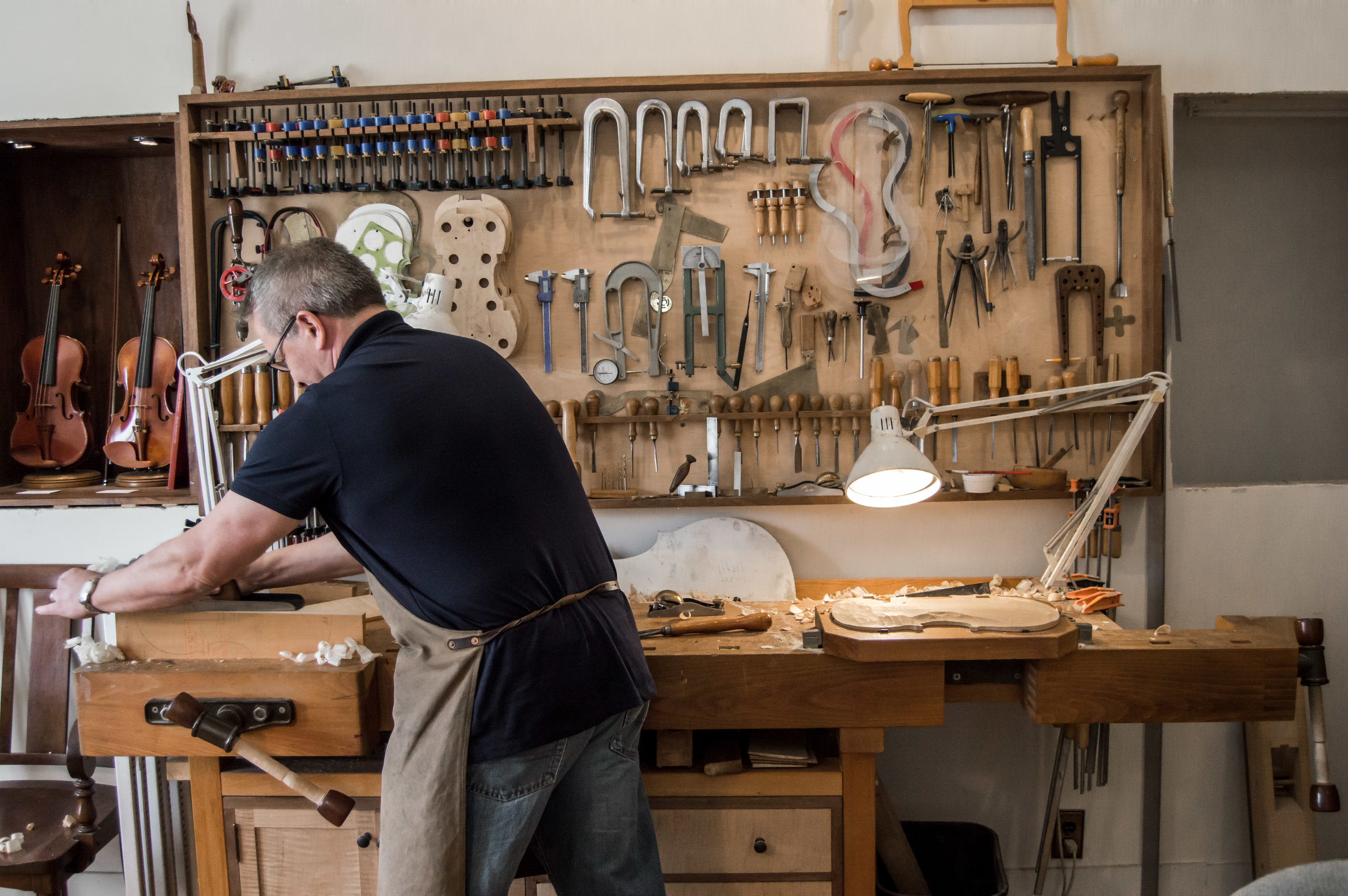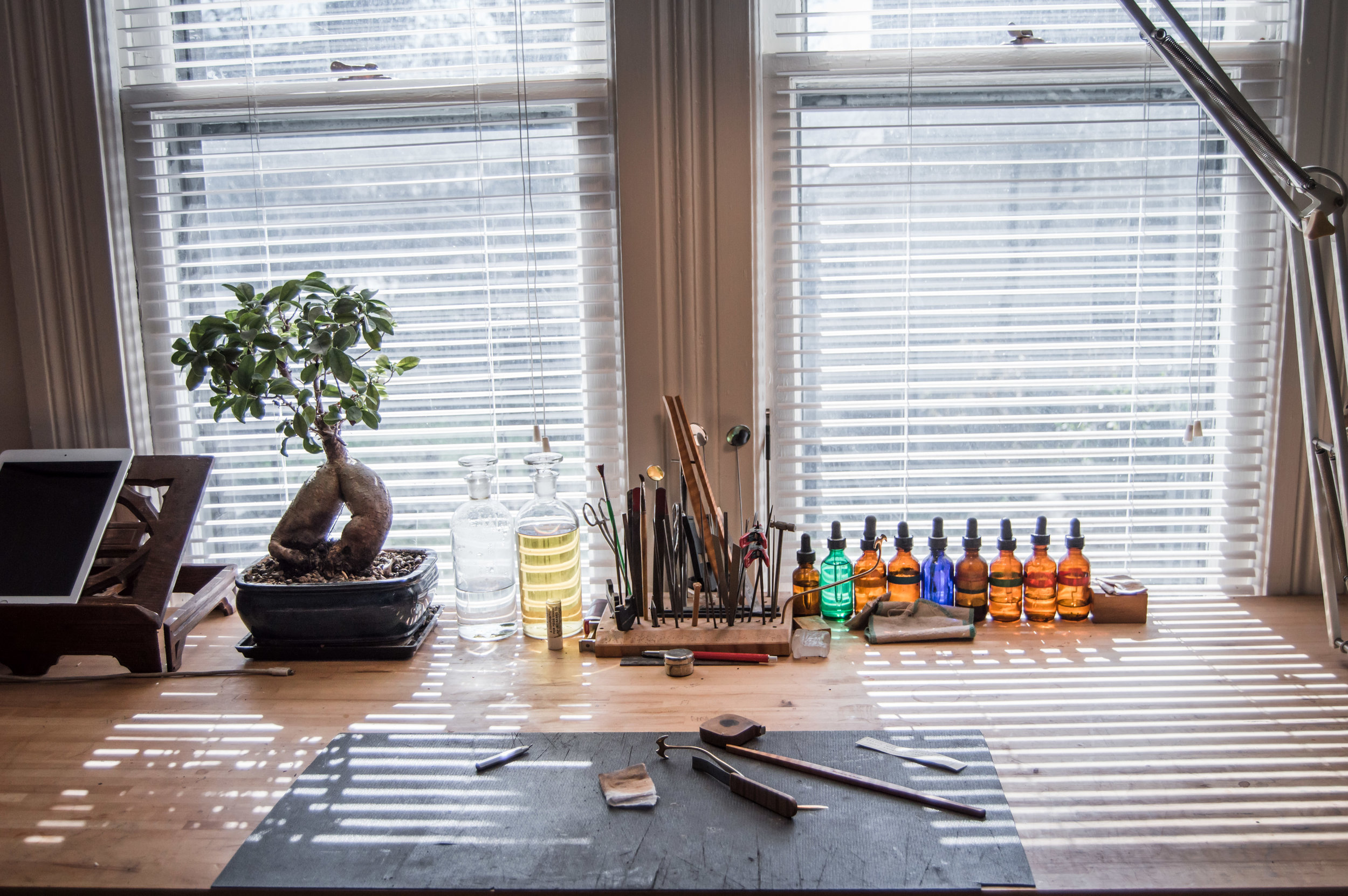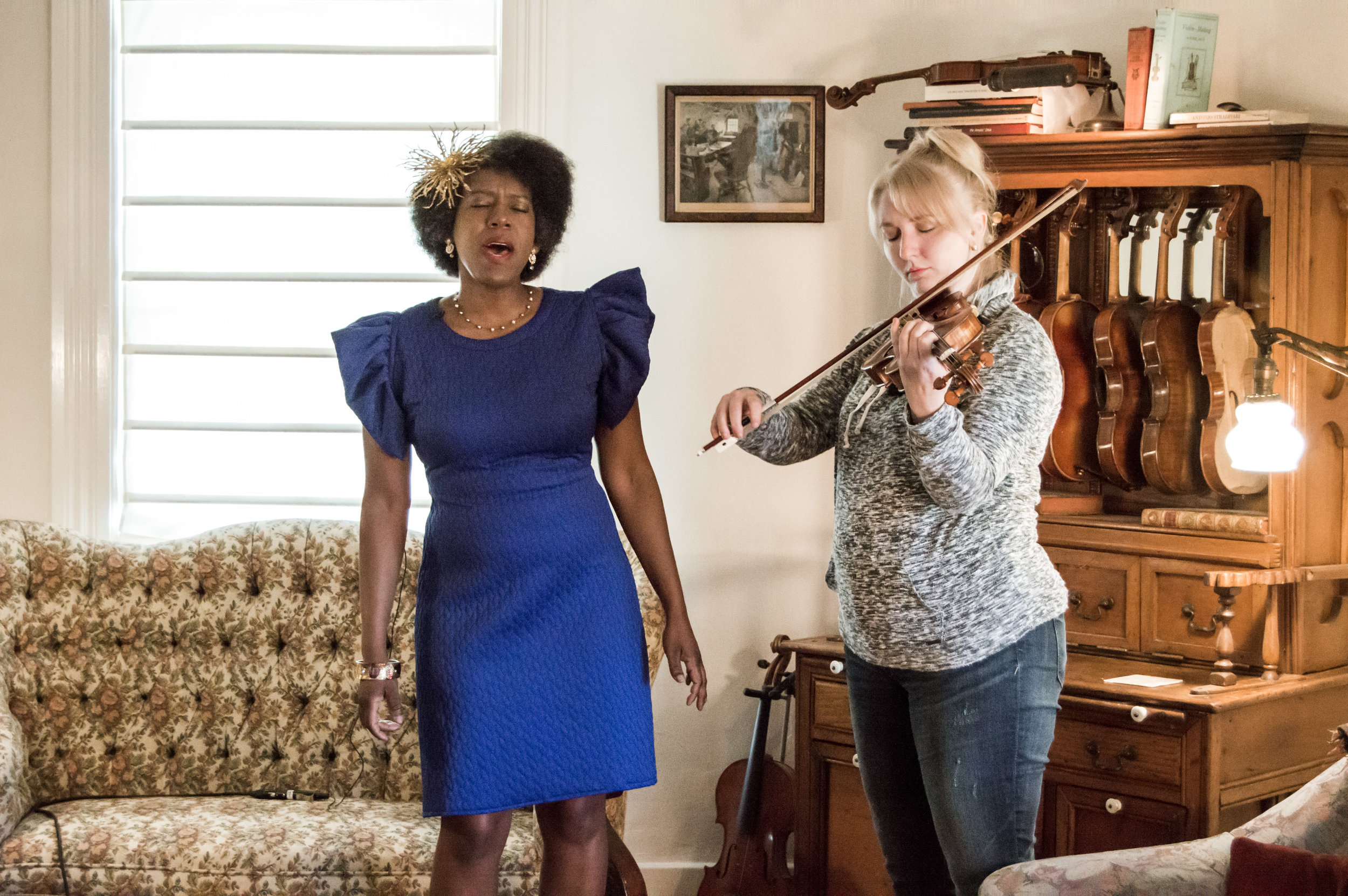Knoxville music makers sing praises of their craft
Video produced by Knoxville Weekend
Written by Susan Alexander
Knoxville music makers find connections and contentment from their craft
Kelle Jolly sang the blues while Bethany Hankins coaxed the lonesome notes that accompanied her out of a violin made by Kelvin Scott.
These three music makers represent just a small segment of the performers and creators who make up Knoxville’s music scene. It’s a scene as diverse and rich as the music it creates. It encompasses Appalachian fiddlers, classical performers, jazz and blues men and women, country crooners, a maker of
fine instruments and those who build and repair amplifiers.
As Knoxville prepares to celebrate the return of the Big Ears Festival and, soon after, the Rhythm N’ Blooms musical festival, get to know three Knoxvillians for whom music is their passion and their
purpose.
Kelle Jolly’s been singing jazz for 25 years. “I didn’t have a pop voice; I have a Sarah Vaughan voice, a Marian Anderson voice. She added the ukulele to her performances “because the guitar was too big.”
And because she learned the ukelele was part of the African-American musical tradition and wanted to be a part of that.
A native of South Carolina who grew up in Atlanta, she calls herself “an Afro-lachian Georgia-lina peach” who’s made Knoxville home since grad school brought her husband to UT. She founded the Women in Jazz Jam Festival (“women needed to be supported and uplifted,” she said) and hosts Jazz Jam with Kelle Jolly on WUOT-FM.
“Performing, singing, it might seem almost childish, but It is serious when you’re talking about improving people’s quality of life. That’s what performing music does for people. It’s the way we’ve made friends, supported ourselves, traveled around the world, even to Japan. Music bridges the gaps between each other.”
Bethany Hankins was 7 or 8 when she picked up a violin, and now she both performs and teaches violin.
“I can pretty much play any genre,” she said, but it’s jazz that speaks to her. “There’s so much soul and depth to jazz; I fell in love with the whole culture of jazz.
“Everyone relates to music in their own way so whether you’re playing one style or another, it hands something different to each person, and sometimes it’s exactly what they needed. I can be in the worst mood or tired or distracted, in a funk, and get on stage and start to play, and it’s like medicine to me. It never fails me.”
UT brought Bethany to Knoxville from her home in southern Indiana in 2000. Now she teaches both young people and adults at her studio.
Are you ever too old to learn? Nope, she said.
“The thing with adults, they might have a little less dexterity physically but also mentally. You may be fencing yourself in. A lot of times adults think they’ve gotten good at a lot of things, so they think they should immediately be good at the violin, but it’s its own animal; you have to break it down to small bits of information. Adults want to swallow it whole and be good at it right now.”
Bethany remembers being asked to be artist-in- residence at Beaumont Magnet School. “I would have a group of students for nine weeks who had never touched a violin. Sometimes those are the students who are most motivated and grateful for it."
Kelvin Scott has a lot of time to think as he creates violins, violas and cellos at his work studio in Mechanicsville.
“It’s a very slow process,” he said. “If I weren’t a father and also a soccer coach, I could probably make one in about eight days,” but instead they take about three weeks to build. Then they are suntanned with ultraviolet light to darken the wood -- that is another three-week process – and then applying the varnish takes another two weeks. “So they take about two months to make, and my waiting list for them is about a year.” He makes between eight and 11 instruments a year.
Kelvin didn’t set out to be a luthier. He got an arts and letters undergraduate degree in English at
Michigan State University, then went to Harvard for a master’s in education. While there, he took up the violin again, having learned to play as a child. After Harvard, he met a violin maker in Scotland and became taken with the craft. While working on a PhD at the University of Michigan, “I found myself making violins at night rather than working on my PhD.” He finally enrolled in the Chicago School of Violin Making and eventually met master luthier Greg Alf, with whom he apprenticed. As a master luthier himself, Kelvin became one of a handful of violin makers worldwide to earn three gold medals in three different years at the VSA International Violinmaking Competition, achieving the status of “hors concours,” meaning he is no longer eligible to compete. He also is the first American violinmaker in several decades to medal at the Triennale international competition in Cremona, Italy.
His wife’s career brought them to Knoxville 15 years ago.
“Violin making is a movable feast,” he said. “Knoxville has been wonderful for a craftsman like me. The cost of living is great and the temperatures and humidity generally is near that of Cremona, Italy, where the greatest violin makers lived and worked in the 16 th and 17 th centuries. There is a wide range of musicians here to evaluate my instruments. I don’t play at the level of a concert violinist, but I service that clientele, so having a confluence of those musicians nearby is very valuable.”
Being a violin maker offers a very appealing lifestyle, Kelvin said, but it’s a challenging occupation. “I am a chemist when I cook varnish. I have to be willing to travel to eastern Europe and Italy and Germany to source wood. I study violin acoustics. And I have to embrace physical craft work; there’s no escaping the thousands of tool strokes it takes to create a quality instrument.”
Still, it’s that old-world commitment to craft that he values, not only in his work but in the maker
community at large.
“We live in modern times where things are stamped out of plastic. Whether you’re making silk screen T-shirts or violins, if you’re trying to improve your craft, there is real gain as a society from people making things that machines can’t duplicate.”
Behind the scenes at Kelvin Scott's studio
Photography by Maranda Vandergriff

